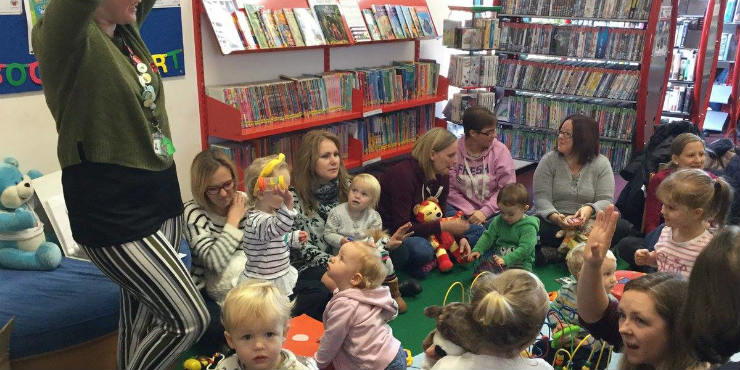There was the sound of giggling and tiny tots voices coming from the children’s section. I was in the library returning books and couldn’t help having a peep to see what was going on.
The toddlers and parents were sat in a circle on the floor having such a happy time together doing rhymes and actions and songs etc. Lovely to see. Fab to see parents engaging and interacting with their kids (no phones anywhere). And full marks to the library for initiating it to help them achieve it.
It’s not something that comes naturally to everyone; engaging with tiny beings, pre-conversation, especially when you’ve only been used to adult chat. I remember wondering what to do with the littlies sometimes – not being a great chitterer myself it didn’t come naturally. So groups like this are great to help those of us who are less inspired in that department to get going.
Because it’s really important that we do. For the simple reason that all the chat, chant, song and engagement with the youngsters we have, at whatever age, is the foundation of education.
This contact, connection, interaction in whatever form is the pre-cursor for essential skills on which education is built – communication being one, as well as listening, observing, responding, thinking, vocabulary development, the basic skills needed for learning to progress. All founded in those simple little sing-songs, chats with your child, constantly reading to them, engaging in whatever way. They are the building blocks from which the mastery of language, communication, mental agility and other skills for wider learning can grow. Just from the stimulation of these types of activities when they are young. Well – it should continue throughout childhood really.
Parents think that getting kids reading early or writing their name, recognising numbers etc will give them a good start to their education. It does.
But the reality is that it starts much, much earlier than that. A good start to education is you!
(For more, check out the last section; ‘How you influence your child’s education’, in my book ‘Mumhood. How to Handle it. Why it Matters’)
